«The work of men is needed» in the definition of policies and practices for gender equality, defended Maria do Céu Cunha Rego, the first recipient of the Maria Barroso Prize, whose award ceremony took place yesterday, in Lagoa.
Maria do Céu Cunha Rego, who has a «relevant contribution in the performance of her professional and civic activity in the field of gender equality», as highlighted by the award jury, ended her intervention by launching «a challenge to boys and men» de Lagoa, «so that they reflect on the reasons and present ideas on how they could implement or reinforce their intervention, directly or indirectly, in the constant improvement of the parity indicators in their municipality».
Later, in statements to journalists, the winner gave a better idea to her idea, for whose implementation she said she could make her “contribution”, “if Lagoa so wishes”.
The fact is that, he stressed, “there is much more work by women, for equality, than there is work by men. Men's work is needed, because equality is between men and women».
“It is not only women who feel that they lack possibilities in public life, men also have to recognize the advantages and benefits of greater investment on their part in private life. Therefore, because it is good that there is parity and balance in society, it is good that the voice of men is also heard in the proposal of public policies, in advancing ideas about what can be done, especially on painful issues, as it is the case of domestic violence. Men also have a say, as men, on how to help build policies that help to combat this scourge».
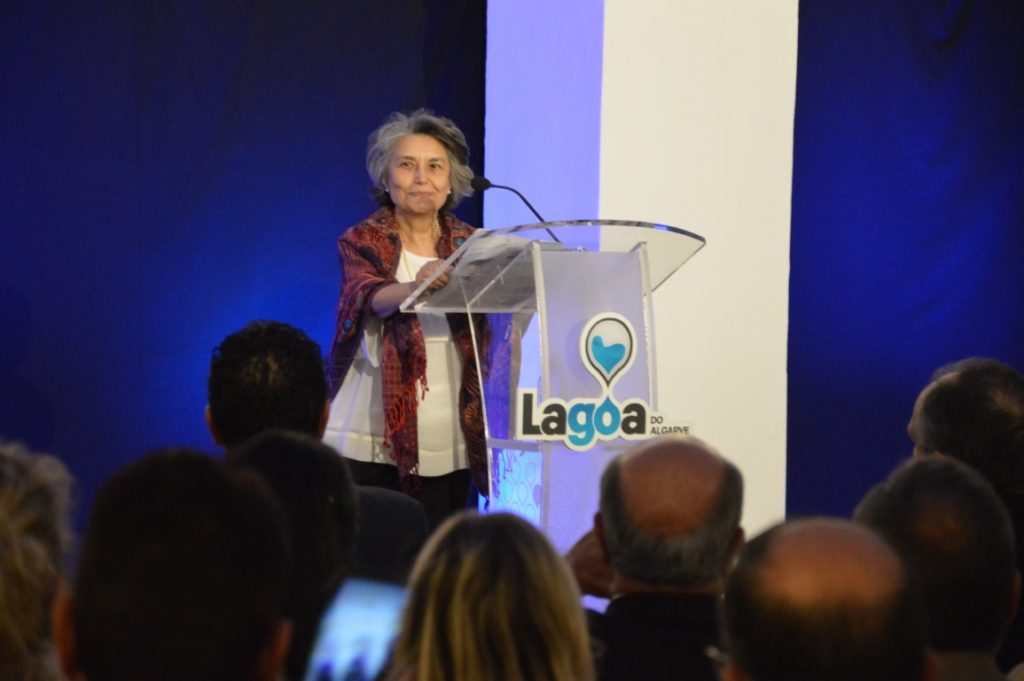
Even in relation to fatherhood, "they themselves can develop practices", namely through "their daily life and the example to their sons and daughters of how a man, despite being tired of work, like women, shares that things to do at home». “The family is the factory of the future, it is where children are raised. Sons and daughters need mothers and fathers, because they are often fed up with mothers”.
Hence, Maria do Céu Cunha Rego argues that it is necessary for men to give their ideas “on how they can contribute to equality. What ideas are there in Lagoa, in the Algarve and in the country?».
Invoking her long experience as a fighter for gender equality and citizenship, Maria do Céu Cunha Rego admitted, in her statements to journalists, that "I was hoping that, so long after we have been working on this work, there would be a more consistent result".
And a large part of this «less consistent result» has to do, in his view, precisely «with the lack of participation of men in the design of public policies and in their own attitude towards equality».
«If we look at the indicators, in the last survey on the use of time in Portugal, 2015, every day women work more than men, in the country as a whole, 1 hour and 13 minutes. It is work offered out of love, but not used for leisure, training, or overtime. And this causes there to be a relative injustice with what happens to the lives of both, "he stressed.
Furthermore, “men also have the right to a closer family and to accompany their children. Young people often still do not recognize this reality, but this is the result of the “children's school”: they have also come to do this”.
Therefore, the winner reinforced, "if there were more men designing policies, giving ideas, more civil society with active participation of men," perhaps the situation would be quite different.
At the award ceremony, the mayor of Lagoa began by underlining that “equality is still a battle. It was good that it wasn't already». The Maria Barroso Prize, created by the municipality of Lagos, with a value of 30 thousand euros, aims to distinguish, every two years, people who have distinguished themselves in this work for "Equality, Gender and Citizenship".
About the Maria Barroso Award, which evokes "a woman who was not limited to being beside a great man, was herself, and in her own merit, a great woman", mayor Francisco Martins highlighted the practice of his own local authority: “It's not worth creating prizes, having another flag, another stamp to put on the door. We have to internalize that this is structuring in the policy we carry out in the Municipality».
“We want a society in which everyone has their place”, he reinforced, recalling that, although by chance, “parity is respected in the positions of leaders of the Chamber of Lagoa, but for the sake of meritocracy. We have reached a level where men and women are in their place by merit».
In relation to Gender Equality, Francisco Martins underlined that, in Lagoa, where there is even an Equality Counselor, the theme is transversal to all departments: «this is not a matter of Social Action, as if women were in need, just because they are women».
The mayor also made a point of emphasizing the role of the Vila Vita Group in this Maria Barroso Award, whose amount (30 euros biennial) is financed by him. But that was not the aspect highlighted by the mayor, rather the fact that Vila Vita is «an example of a company that treats all [its employees] with equality and above what is required».
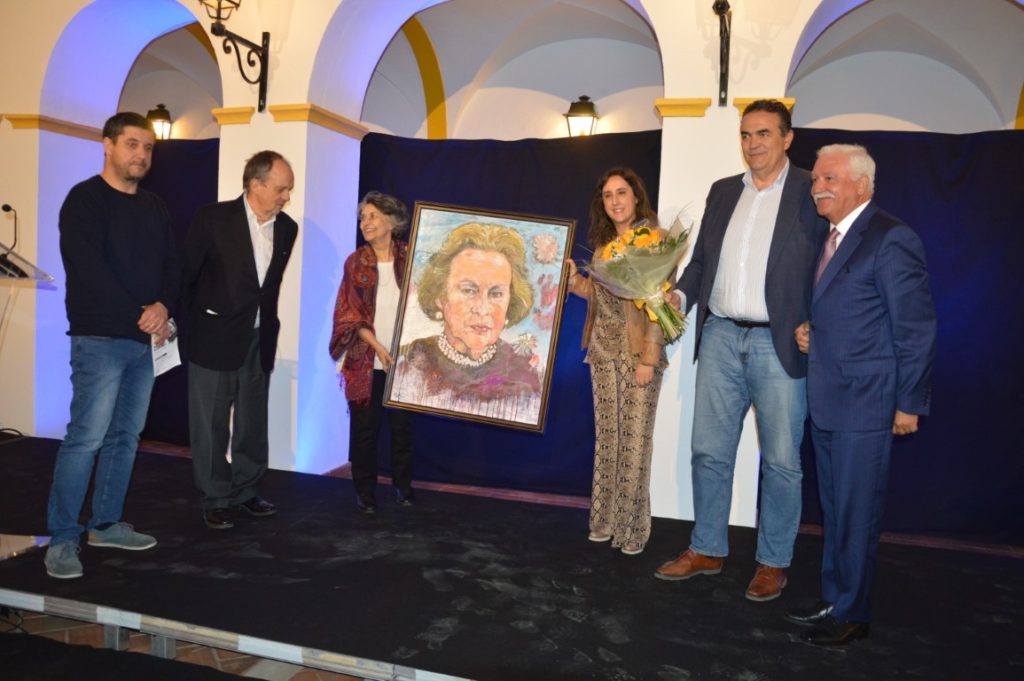
Rosa Monteiro, Secretary of State for Citizenship and Equality, present at the ceremony, began by highlighting the tribute to a person like Maria do Céu Cunha Rego, for her «contribution to the advances we have had in Portugal».
And he also congratulated the mayor of Lagoa, both for the institution of the award and, above all, for "the policies he promotes", for his "committed, serious and effective work", guaranteeing the "cross-cutting nature of these Equality matters". “Equality policies cannot continue to be isolated in social areas, because they are present in all aspects of life,” added Rosa Monteiro.
As for the honoree, the secretary of State considered the "very fair distinction" and highlighted her "contribution to the source of equality policies in our country", which were born and grew with democracy in Portugal.
However, he warned, "at this moment there is danger and threat of backtracking on these issues."
João Soares, representing the family, said that "everyone is very happy that Maria do Céu Cunha Rego was the very first awarded" with the award that bears her mother's name.
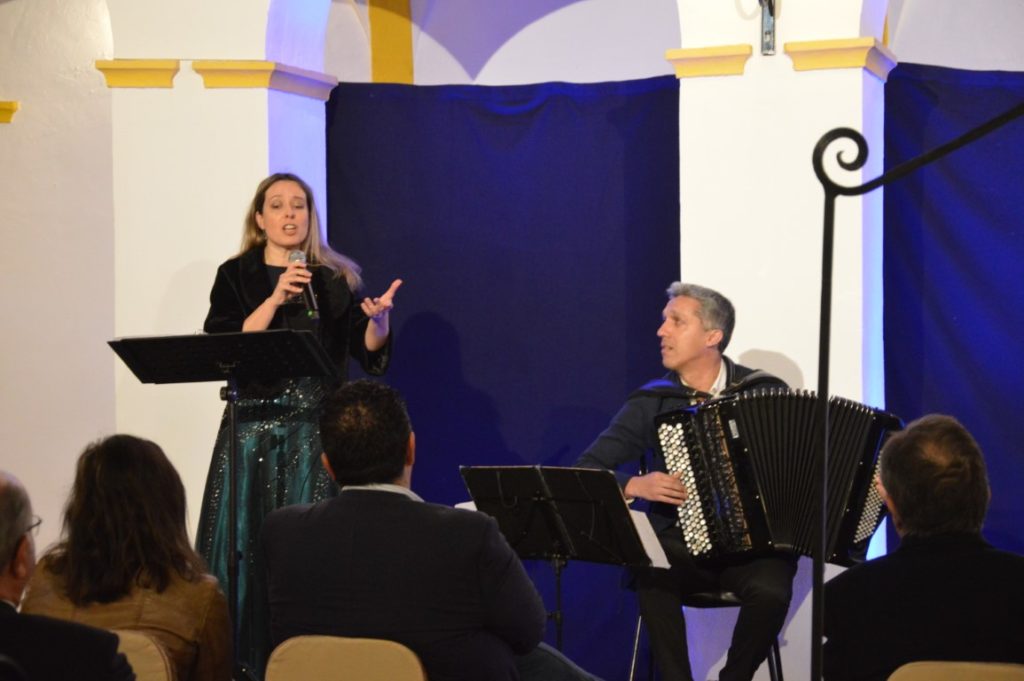
Maria do Céu Cunha Rego was distinguished in this first edition of the Maria Barroso Award, for “her relevant contribution to the performance of her professional and civic activity in the field of gender equality”.
From the awardee's vast trajectory, the jury for this Award highlighted “the strong influence in the introduction of matters associated with the reconciliation of work/family and private life on the national and European agenda”.
Maria do Céu Cunha Rego was born in Elvas, in 1950, and graduated in law in 1973. She was secretary of state for equality in the government of António Guterres. She was president of the Commission for Equality in Labor and Employment, vice president of the Commission for Equality and Women's Rights, member of the board of directors of the European Institute for Gender Equality. It currently maintains an active participation at the level of academia and public life in general.
Opening and closing the ceremony, which took place in the cloisters of the Convento de S. José, soprano Carla Pontes, accompanied first by Helena Madeira's harp and then by Gonçalo Pescada's accordion, sang songs from the repertoire of José Afonso and others from popular tradition in Portugal and beyond. At the end, there was a theatrical note by actor João Pedro Correia. «A woman is…».
Photos: Elisabete Rodrigues | Sul Informação
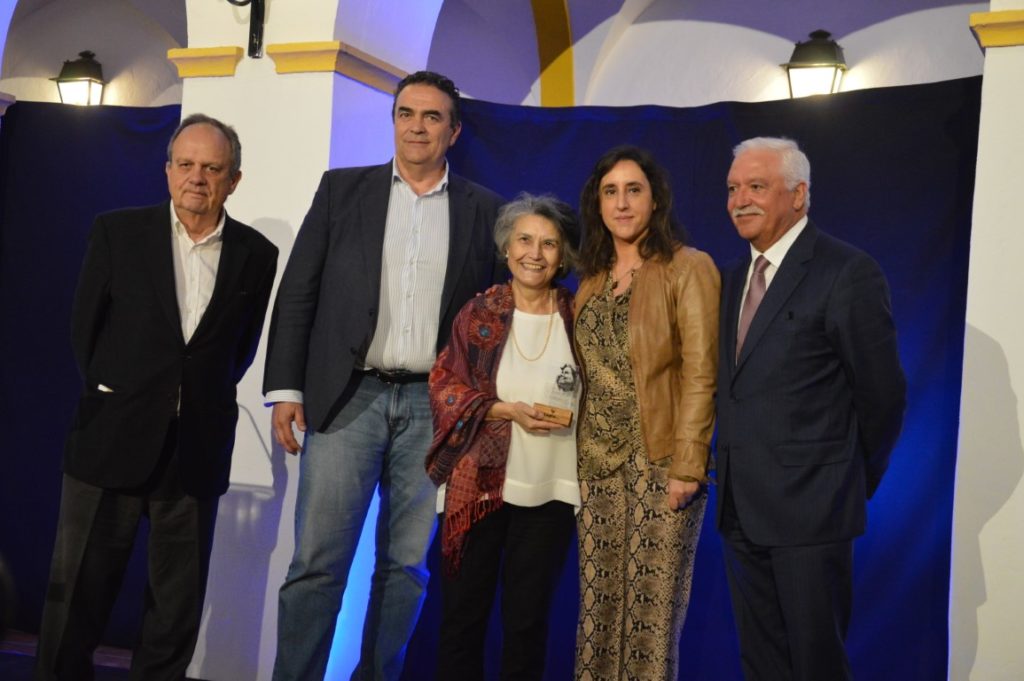
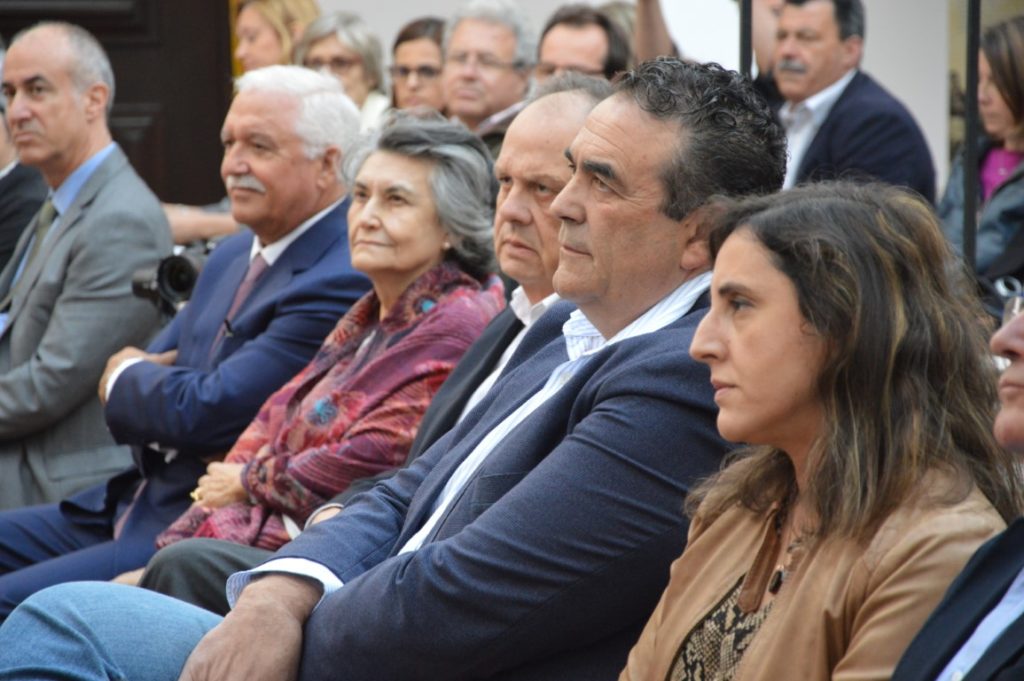
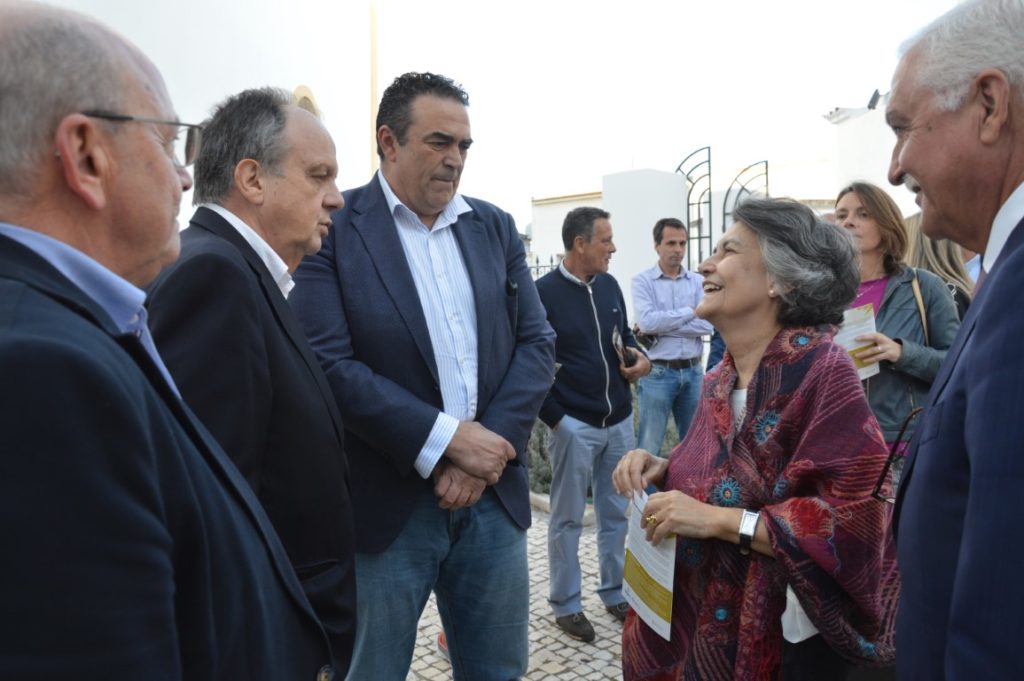
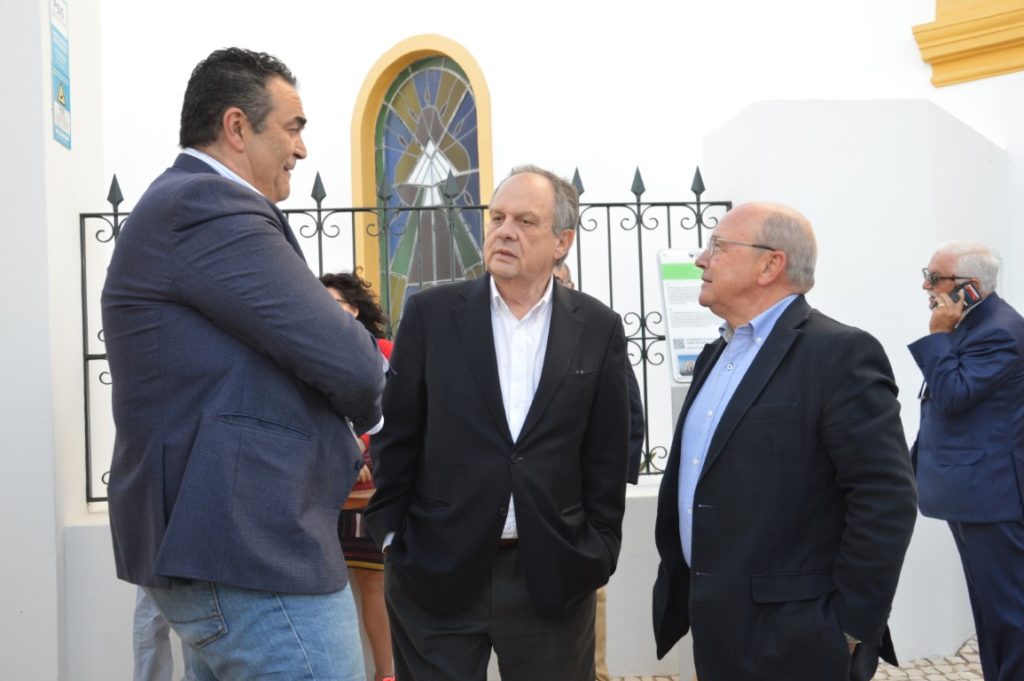
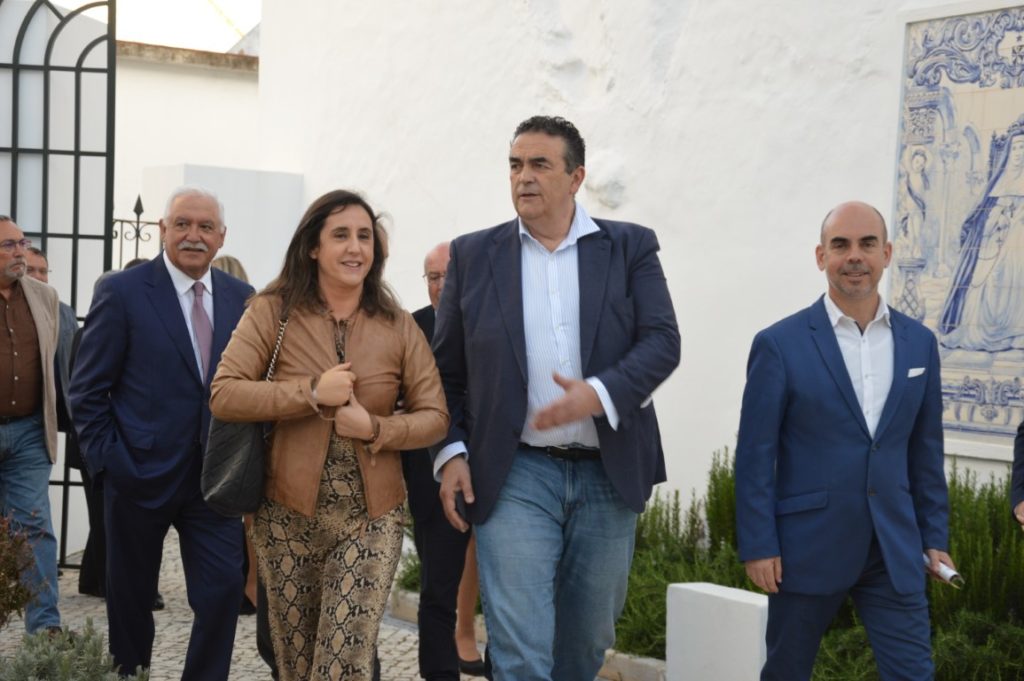
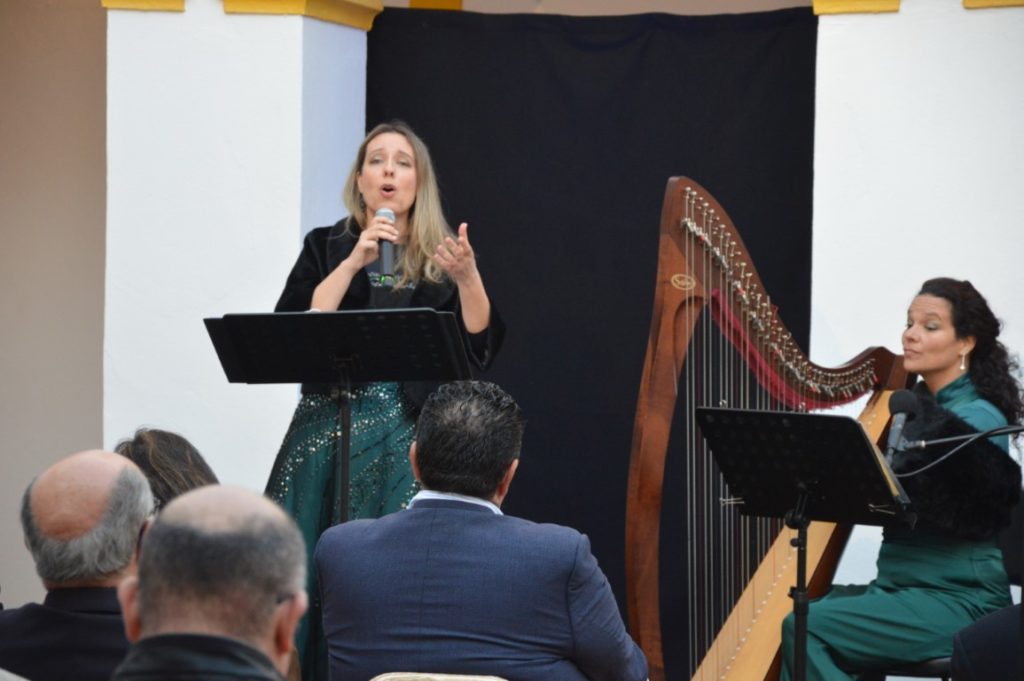

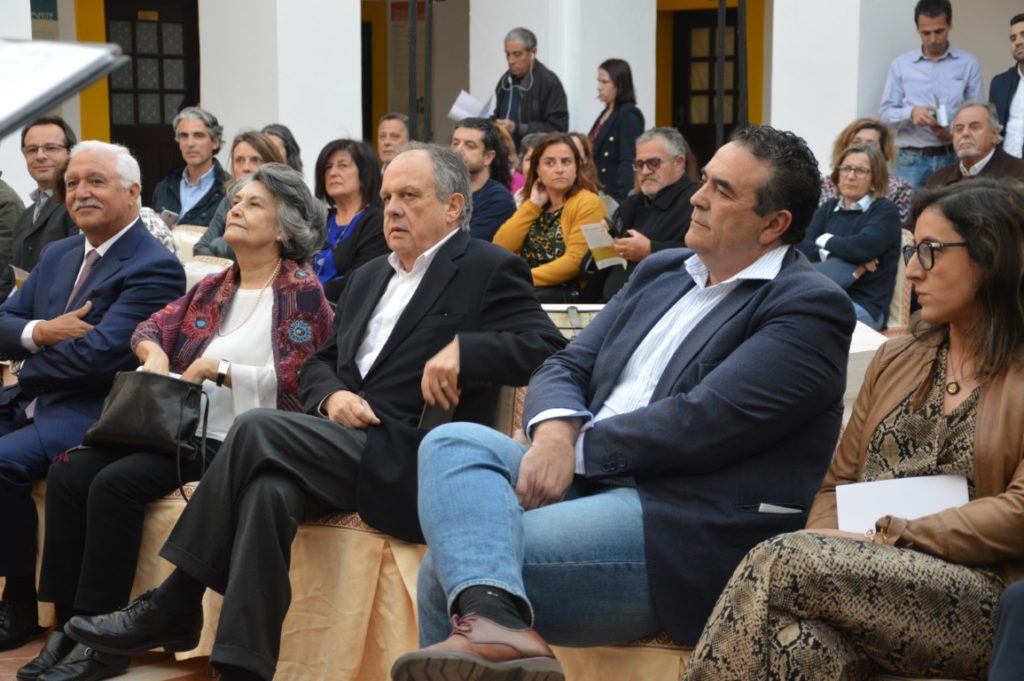
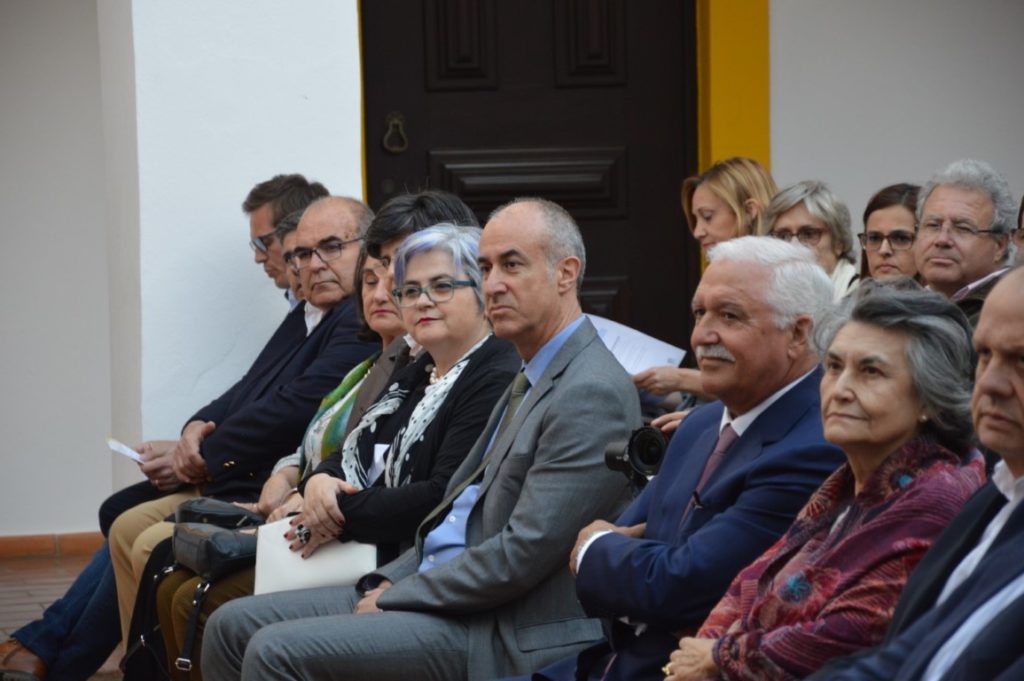
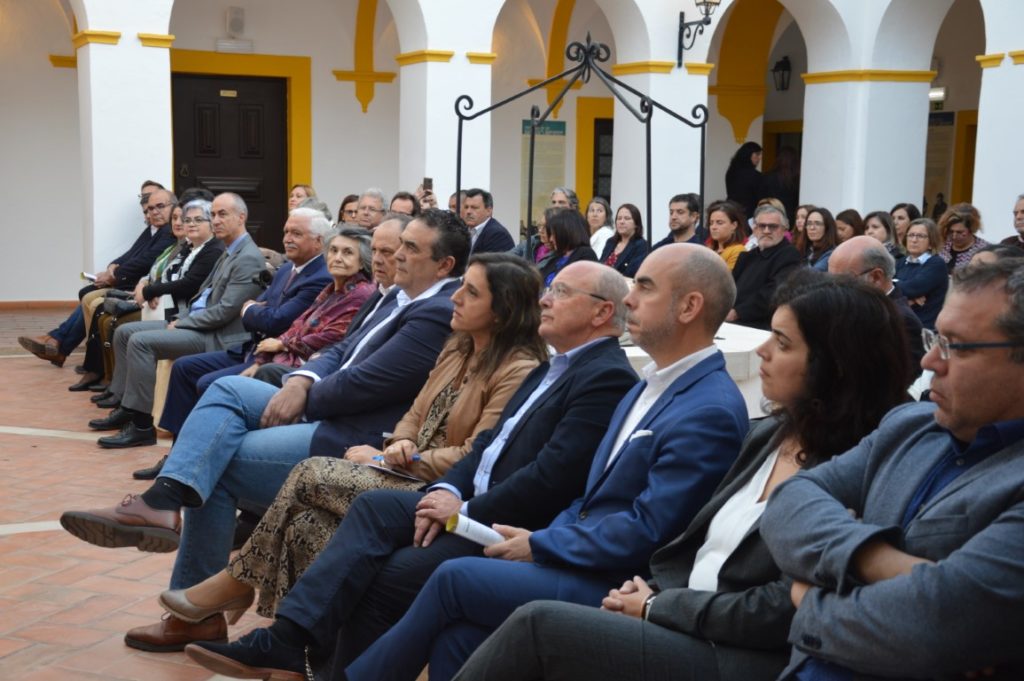
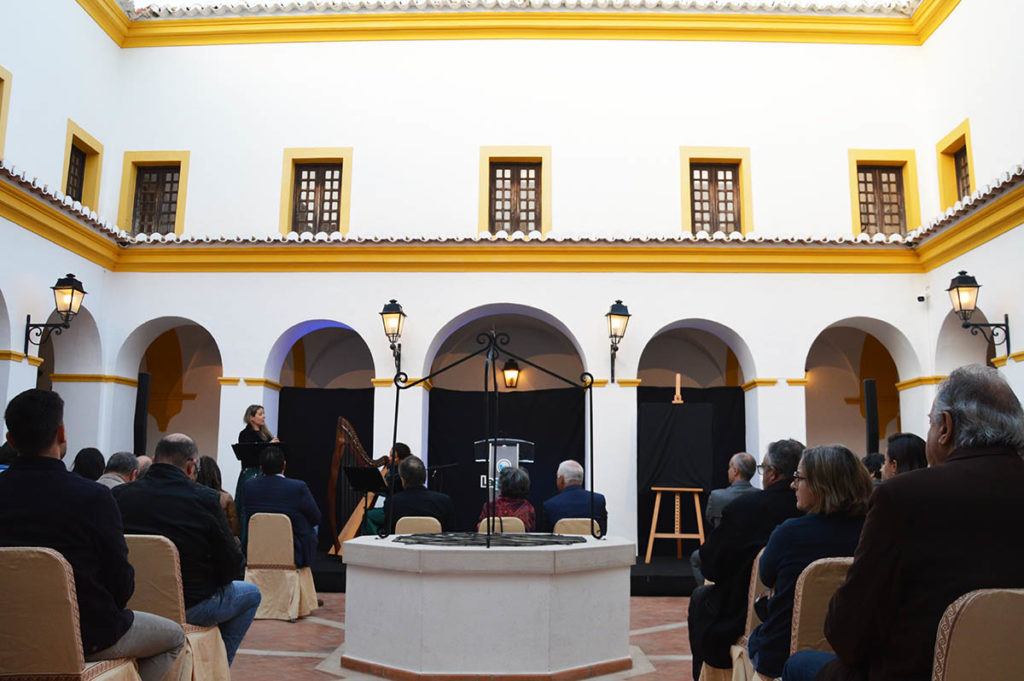
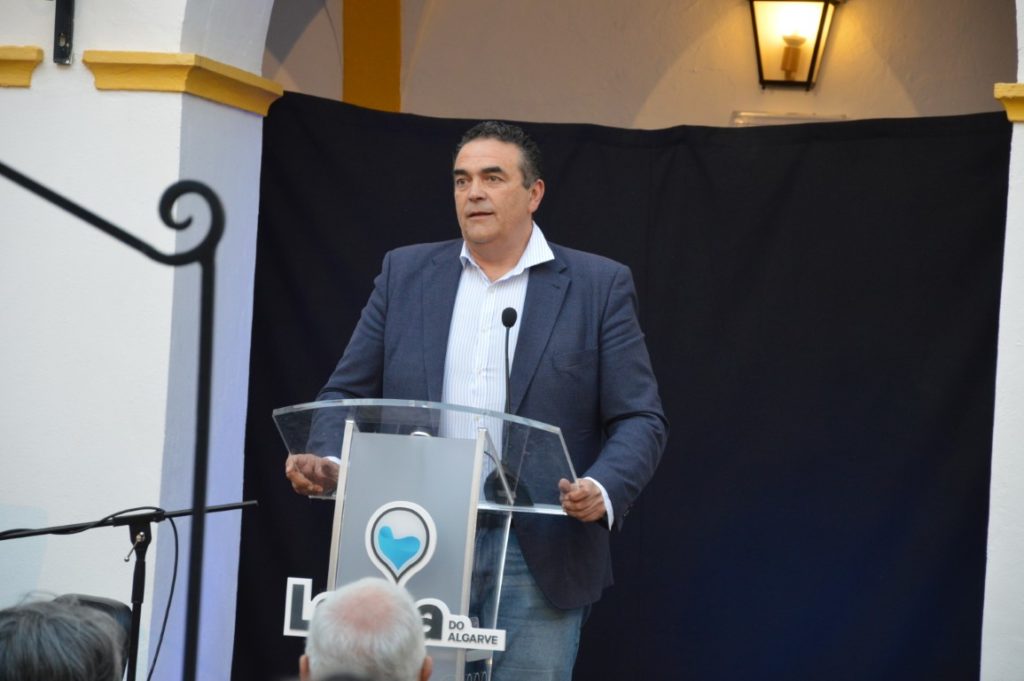
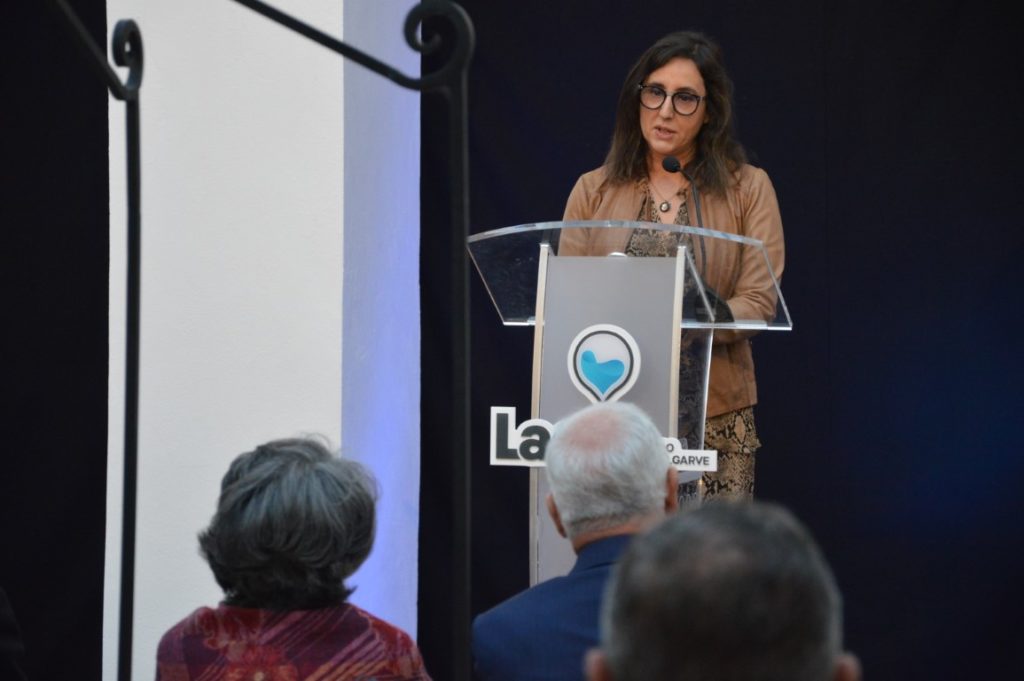

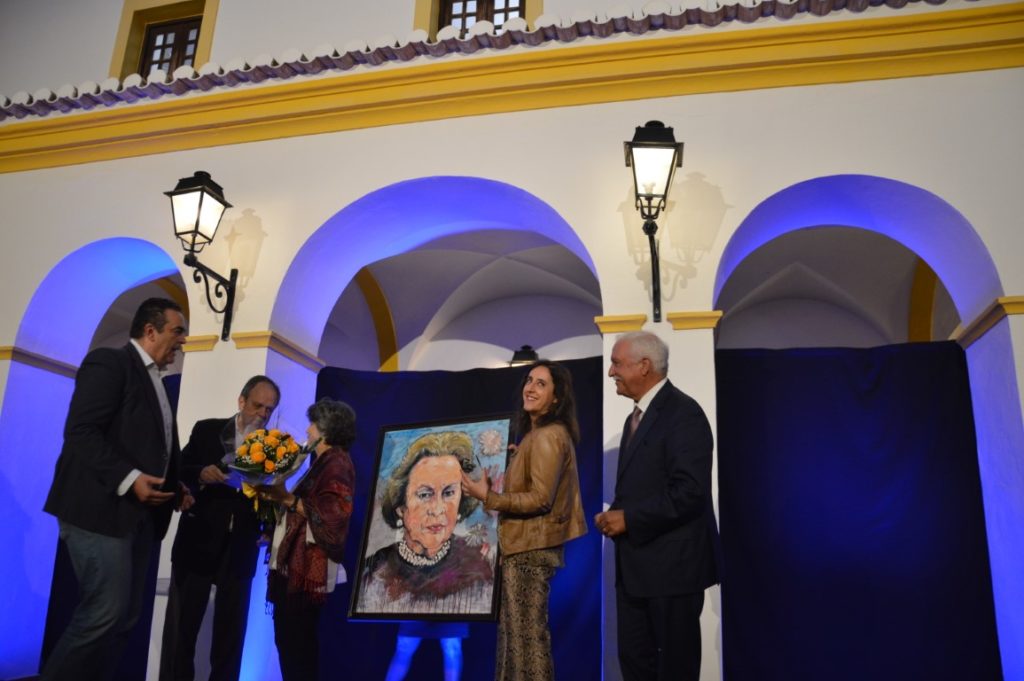


















Comments